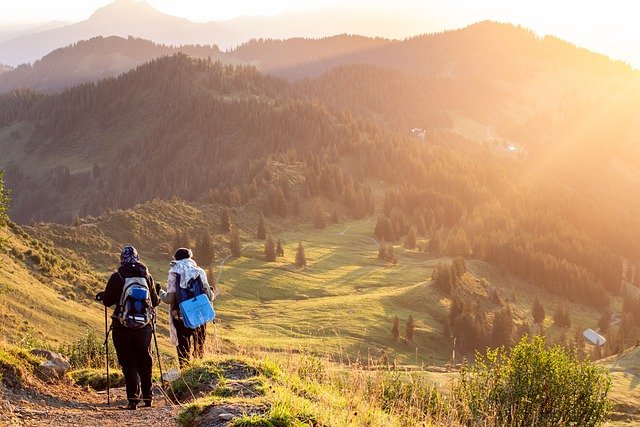
The panorama produced over the last year both in Spain and throughout the world, has destroyed many of the studies, theories and forecasts regarding the advances and trends in tourism, the segments and generations of travelers, so that the theories that were known until today continue to take place, but it is still difficult to assess how they apply to the current ruling reality.
That is, if we take, for example, the theories about tourism consumers belonging to the generation of millennials (Generation Y), suggested that people born in the corresponding period were characterized, among others, by making frequent getaways, being lovers of traveling to European capitals and not giving so much importance to the type of accommodation where they were going to make their stay. Or, like the younger generation known today, Generation Z, they do not tend to turn to travel agencies even for trips to distant and exotic places. Or, focusing on the case of an older generation, Generation X, for example, which was characterized by little recourse to the online world to plan, book or buy trips, read opinions and share their own.
Will these characteristics be valid after this economic and health crisis that the world and the tourism sector in particular are experiencing? How will existing theories be addressed to better segment the market and offer an optimal experience?
The profile of the traveling consumer has already changed and continues to change, largely impacted by current environmental circumstances, which have forced several generations and segments of tourists to reevaluate their consumption and shopping habits, the ways in which they lead to complete the travel cycle and the purchase. Current trends indicate, among others, that there will be more consumers of the younger generations who can rely on the figure of a tourist intermediary to organize their trip in a more secure way, or consumers of the older generations who have already begun to trust more in technology when looking for information and booking.
Undoubtedly, there is still a wide range of other characteristics that will not disappear or change, but, on the contrary, will gain more strength. Such as, for example, the intensity with which these last two generations use technology and the confidence that it gives them, the interest they show in discovering new cultures and trying to integrate into them, natural spaces, as well as the marked concern for problems of the environment, with a marked awareness of the effects produced by the use of certain materials and products.
There are diverse opinions of experts who suggest that travelers, in general, without making a difference depending on the generation to which they belong, will seek more security, both economically and healthily, which is why it is now more difficult to imagine A getaway to a little-known exotic destination and staying in a shared place with more unknown people, for example, will seem unimaginable to someone.
In addition, according to various points of view, the figure of the travel agent will be reborn with more force, like a phoenix. Perhaps just in the previous example, the key piece that is missing to be able to make a trip of this nature, is the travel agent, who knows how to provide security, give timely advice and take care of any issue that occurs before or during the trip.

As has been insisted before, what entrepreneurs can and have to do in the face of such changes in consumer segments is to adapt as the surrounding circumstances change or, rather, to improve, reinvent themselves, rethink operating strategies , production and promotion. Remaining relevant to highlight, that, indeed, it is not only about adapting, but about coming out better than it was before, more prosperous, with more knowledge, foundation and action plans for any scenario.
Current and foreseeable consumption trends for the current year, which are common to all segments and generations, require that service providers have sufficient safety, technology and environmental care measures to meet expectations and the traveler's need. Travel agents, in particular, today have a unique possibility of reinventing their way of operating and contacting the public in such a way that they gain the attention of younger generations, who until now did not need any intermediary, both physical , like online, to plan your trip.
The trends that are expected of the traveler for the year 2021 and that are known today are mainly summarized in the following:
– Trips of a longer duration, around two weeks or more, although perhaps less frequent throughout the year;
– An interest in exploring the closest local destinations;
– Spend vacation time with close people, family and friends;
– Combine the trip with work or studies, by opening up more possibilities to carry out these two online;
– Seek more security through the quality standards of the establishment or destination;
– Find and assess the presence of technological and digital solutions throughout the entire purchase and travel cycle;
– Seek the most flexible purchasing and cancellation policies, discounts and promotions, giving special importance to the quality-price ratio of products and services;
Definitely, it is difficult to make any type of forecast regarding the development and evolution of tourism activity and consumer trends that are framed within this sector. However, it is necessary to see the consumer from a new point of view, creating new theories as the possibility of doing so opens up. Probably, the generations of tourism consumers are no longer as before, probably the sector will have to accelerate and to start over in its knowledge of the market and its personality, probably consumers of the common characteristics that tourism will encounter, As a result of the crisis of the pandemic, it could be called Generation Zero.

